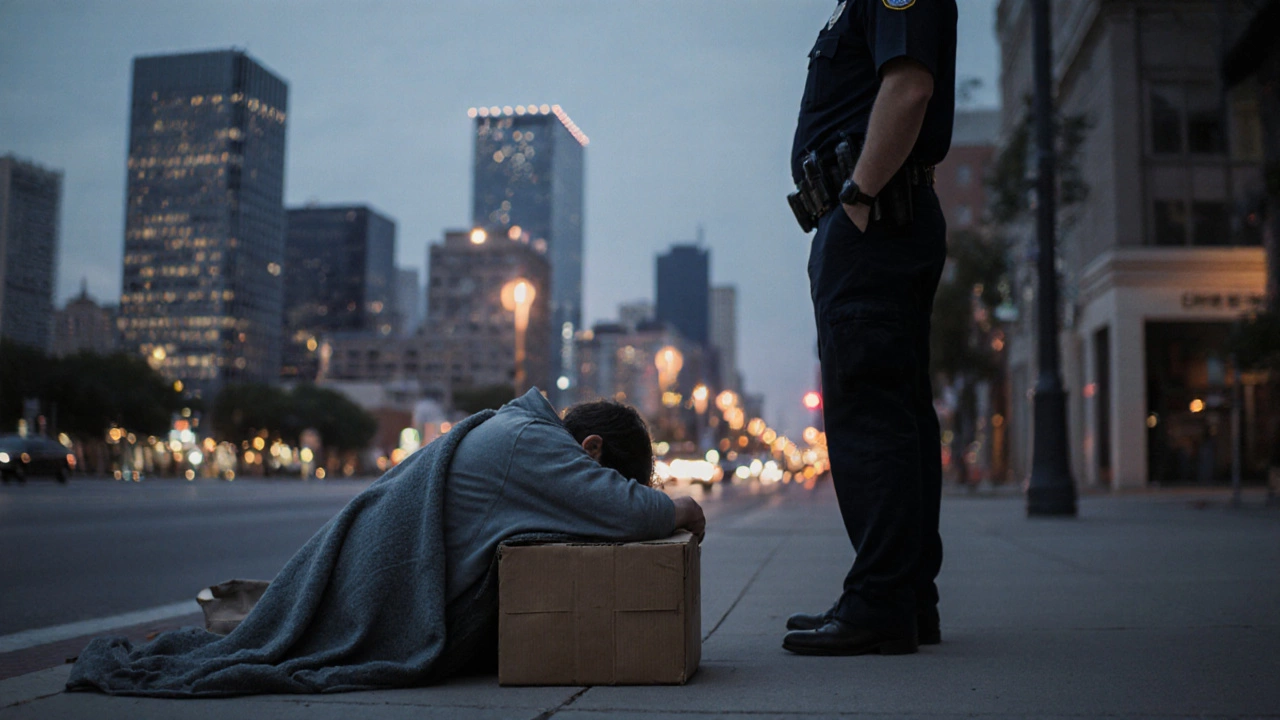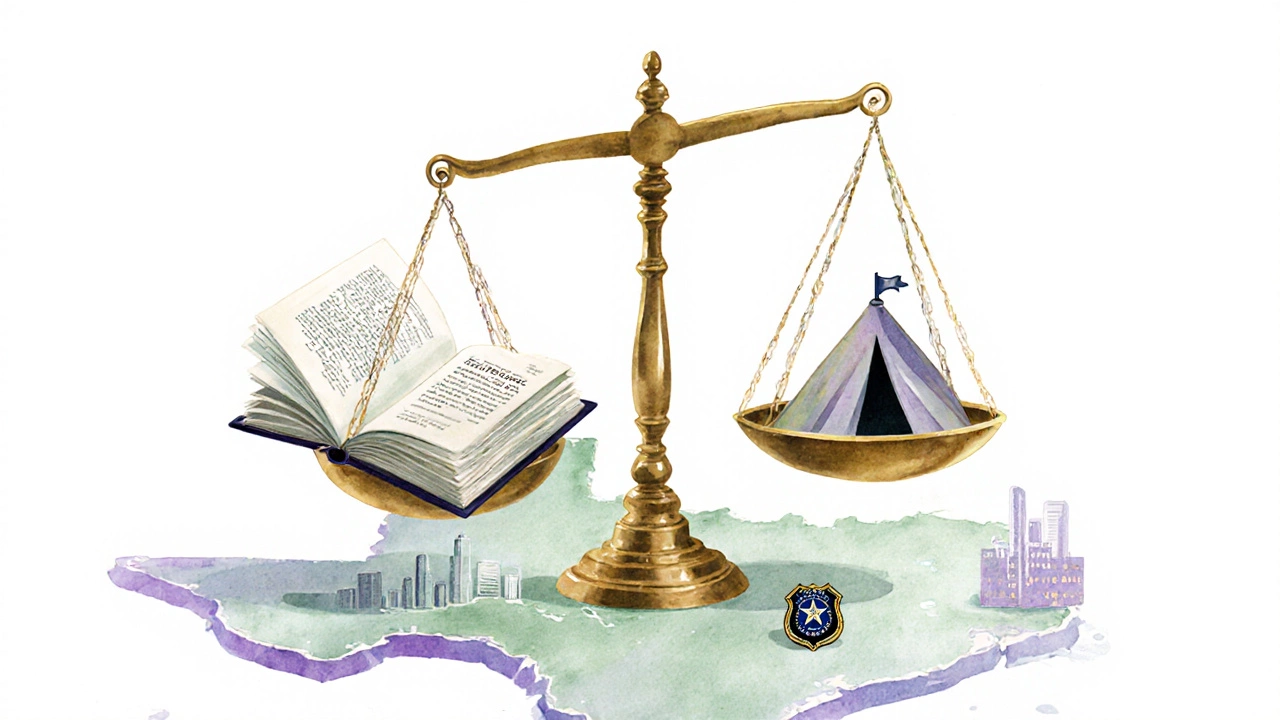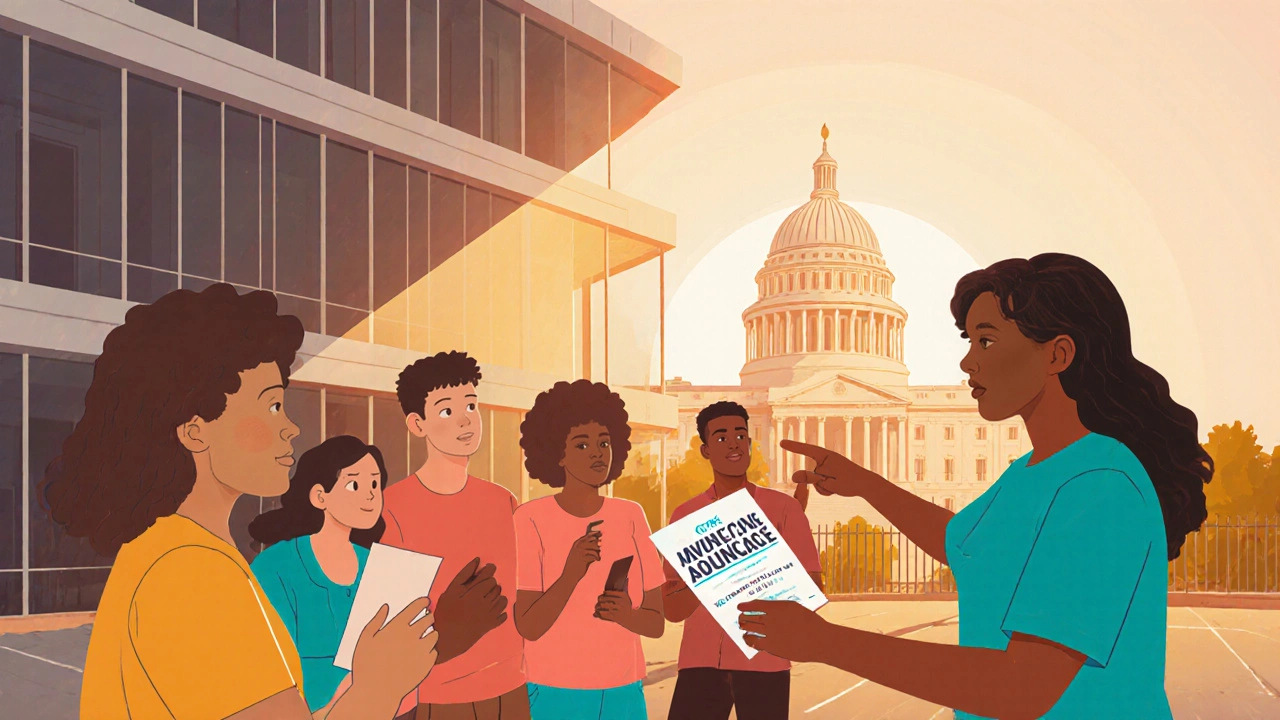Is Homelessness a Crime in Texas? Legal Facts Explained
 Oct, 7 2025
Oct, 7 2025
Texas Homelessness Law Checker
- 1 Being homeless is not a crime in Texas
- 2 Local ordinances target specific behaviors
- 3 First-time violations usually result in citations
- 4 Repeated violations may lead to criminal charges
- 5 Constitutional protections apply to all citizens
When you hear headlines about cities cracking down on people sleeping on sidewalks, you might wonder: is homelessness a crime in Texas? The short answer is no-simply being without a home isn’t a criminal offense. However, the reality is tangled with a patchwork of state statutes, city ordinances, and enforcement practices that can make daily life feel like a legal minefield.
Quick Takeaways
- Texas does not have a statewide anti‑vagrancy law that criminalizes homelessness.
- Local municipalities can enforce ordinances that ban camping, sleeping, or loitering in public spaces.
- Violations usually target specific conduct (e.g., public intoxication) rather than the status of being homeless.
- Legal defenses often hinge on constitutional rights, especially the 8th Amendment’s protection against cruel and unusual punishment.
- Free legal aid and shelter resources are available in major Texas cities.
What the Texas Penal Code Says
At the state level, the Texas Penal Code defines criminal offenses ranging from theft to assault but does not include a provision that makes homelessness itself illegal. The closest language appears in Chapter 38, which addresses disorderly conduct, but even there the statute requires a specific act-like creating a hazardous condition-not merely the condition of lacking housing.
Legacy of Vagrancy Laws
Historically, many states once had “vagrancy” statutes that punished people for being idle or homeless. Texas repealed its outdated vagrancy provisions in the 1990s after several constitutional challenges. Today, the Texas Constitution guarantees due process and protection against excessive fines, which courts have used to strike down attempts to criminalize homelessness without a legitimate governmental interest. This legal backdrop means that any law targeting homelessness must be narrowly tailored.

City Ordinances: The Real Enforcement Frontline
While state law stays hands‑off, cities like Austin has a population of over 950,000 and a reputation for progressive housing policies, Dallas enforces a public camping ban that makes it illegal to set up a tent or other temporary shelter on city streets after midnight, and Houston uses a “public nuisance” ordinance that can be applied to encampments deemed hazardous, have crafted policies that effectively criminalize certain behaviors associated with homelessness.
These municipal rules typically contain three key elements:
- Definition of “camping” or “sleeping” in a public place.
- Specified hours when the restriction applies (often overnight).
- Penalties ranging from citations (often $50‑$200) to misdemeanor charges for repeat violations.
When Enforcement Becomes Criminal
Police officers usually issue a civil citation for a first‑time violation. However, repeated citations can escalate to criminal charges, especially if the individual is deemed to be “willfully” defying the ordinance. In Dallas, for instance, a third violation within a 30‑day window can lead to a Class B misdemeanor-punishable by up to 180 days in jail and a $2,000 fine.
Courts have occasionally weighed in on the constitutionality of these ordinances. In In the Matter of City of Austin v. Elbert (2022), the Texas Court of Appeals held that a blanket ban on nighttime camping violated the 8th Amendment because it imposed punitive measures without offering adequate shelter alternatives. The ruling forced Austin to revise its ordinance to include a “housing first” component, directing officers to refer individuals to nearby shelters before issuing citations.
Practical Tips for People Facing a Citation
If you receive a ticket for camping or loitering, here’s a quick playbook:
- Document the encounter. Note the officer’s badge number, time, location, and any witnesses.
- Ask for an informational brochure. Many cities provide a pamphlet outlining shelter locations and legal rights.
- Contact legal aid. Organizations such as Legal Aid of Northwest Texas offers free representation for low‑income individuals facing criminal charges related to homelessness can help contest the citation.
- Appeal the ticket. Most municipalities have an administrative hearing process; you can argue that the ordinance was applied arbitrarily or that you were not provided a shelter alternative.
- Seek shelter. Using a certified shelter can demonstrate good faith and may reduce penalties.

Resources and Support Networks
Knowing where to turn can make the difference between a simple citation and a courtroom battle. Below is a list of statewide and city‑specific resources:
| Service | Location | Contact |
|---|---|---|
| Homeless Hotline (24/7) | Statewide | 1‑800‑HOME‑TX |
| Legal Aid of Northwest Texas | Amarillo, Lubbock | email: [email protected] |
| Housing First Dallas | Dallas | www.housingfirstdallas.org |
| Austin Shelter Services | Austin | www.austinshelters.org |
| Houston Homeless Outreach | Houston | 555‑555‑1234 |
How to Advocate for Policy Change
Legal battles are only one side of the coin. Grassroots advocacy can reshape the laws that affect homeless Texans. Consider these actions:
- Attend city council meetings and voice concerns about overly punitive ordinances.
- Support “housing first” initiatives that fund permanent supportive housing rather than short‑term policing.
- Donate to nonprofits that provide shelter, job training, and mental‑health services-addressing the root causes reduces the need for enforcement.
- Reach out to your state legislator and ask them to introduce bills that protect the right to exist in public spaces without fear of criminal prosecution.
Frequently Asked Questions
Is there a statewide law that makes homelessness illegal in Texas?
No. The Texas Penal Code does not criminalize the condition of being homeless. Any legal action must target specific conduct, such as public intoxication, not the lack of housing.
Can I be arrested for sleeping on a sidewalk?
Arrest is rare for a first offense; police usually issue a civil citation. However, repeated violations of city camping bans can lead to misdemeanor charges in places like Dallas and Houston.
What rights do I have if I’m cited?
You have the right to an administrative hearing, to contest the citation, and to request legal representation. The 8th Amendment protects you from excessive fines if the city does not provide shelter alternatives.
Which cities in Texas have the strictest camping bans?
Dallas, Houston, and Austin have the most actively enforced ordinances. Dallas imposes a $100 citation after 24‑hour notice; Houston can issue a $200 fine for public nuisance; Austin requires permits for any overnight stay in a public park.
Where can I find free legal help?
Legal Aid of Northwest Texas, the Texas Civil Rights Project, and local law schools’ pro‑bono clinics all offer free assistance to people facing criminal charges related to homelessness.
Does criminalizing homelessness violate the U.S. Constitution?
Courts have ruled that punitive measures without a legitimate public safety purpose can breach the 8th Amendment’s ban on cruel and unusual punishment, and the 14th Amendment’s due‑process clause.
What is the “housing first” approach?
It’s a policy model that places homeless individuals directly into permanent housing before requiring treatment or employment, based on evidence that stability improves outcomes across health, employment, and recidivism.
Understanding the legal landscape helps you know when a citation is just a warning and when it could turn into a criminal case. While Texas does not criminalize homelessness per se, the patchwork of city rules can feel like a de‑facto crime. Armed with the facts, you can protect your rights, find the right support, and push for policies that treat people with dignity rather than as tickets to be written.